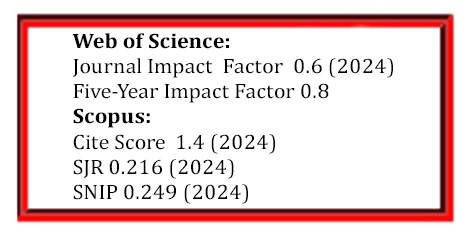Functional Properties of Thin Films of Deoxyribonucleic Acid with Poly(3,4-ethylenedioxythiophene) and Poly(styrenesulfonate) Complex and Bistability of Their Photocurrent
Keywords:
deoxyribonucleic acid, poly(3,4-ethylenedioxythiophene), poly(styrenesulfonate), light absorption, electrical and photoconductivity, thermally stimulated conductivity, charge carrier trapping.Abstract
Functional photo- and electrical properties of thin films of DNA:PEDT-PSS were investigated. The sample currentvoltage
dependencies were linear and symmetrical down to liquid nitrogen temperature; the sample conductivity at
300 K was found to be 10–10 Ω–1cm–1. The thermal activation energy of the dark conductivity was about 33 meV
independently on the applied bias in the temperature region between 200 K and 300 K. Carrier trapping was evidenced
by the Thermally Stimulated Current method. Nevertheless this effect was weakly expressed, most probably because of
the fast recombination of generated carriers. Notably, a “bistable” photoconduction behaviour was identified below the
room temperature at constant light excitation. Upon illumination of the samples by ~500 nm – 800 nm light a marked
increase of the photocurrent took place by cooling them below 140 K – 160 K. In contrast, by heating the
photosensitivity remained increased up to 230 K – 240 K. This effect could be associated with the light-induced
modification of charge transport conditions in the samples.
Downloads
Published
Issue
Section
License
The copyrights for articles in this journal are retained by the author(s), with first publication rights granted to the journal. By virtue of their appearance in this open-access journal, articles are free to use with proper attribution in educational and other non-commercial settings.



